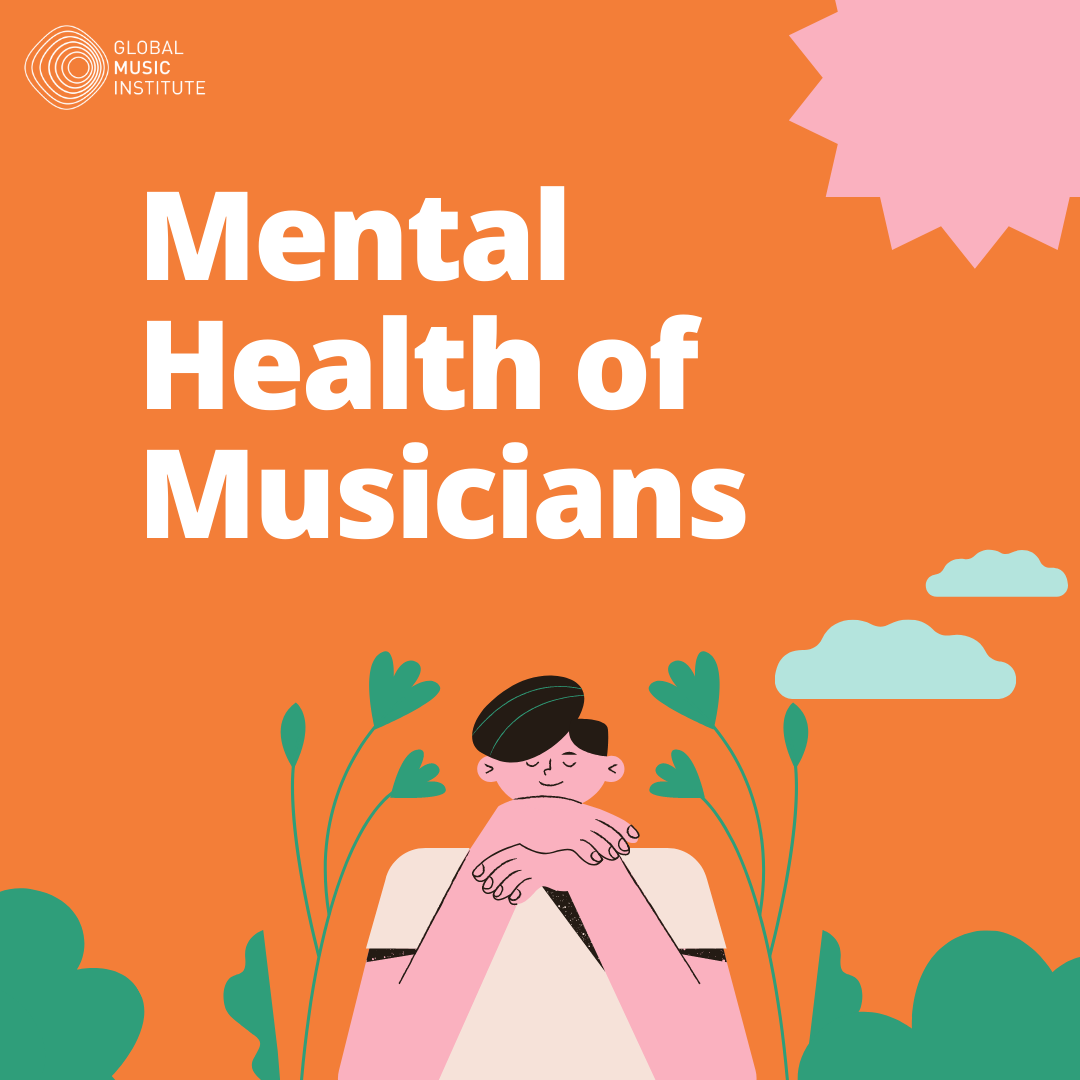
28 Apr Mental Health of Musicians
This material has been prepared through primary and secondary research for informational purposes only, and is not intended to provide, and should not be relied on for health advice. You should consult your own advisors and/or mental health professionals before making any personal decisions.
Music is a healer and a source of solace. However, for those working in the music industry, it might be the very thing making them sick. The world’s biggest pop stars like Justin Bieber, Demi Lovato, Lady Gaga, and Britney Spears have spoken openly about the toll their music careers have taken on their mental health. In the last decade alone, we have lost some of the world’s most loved musicians- Chris Cornnell of Soundgarden, Linkin Park’s frontman Chester Benninngton, and Avicii– to suicide. Is this a trend, or a coincidence? These findings beg the question– what is pushing musicians over the edge?
Survey
To better understand the experiences of musicians and their mental health in the Indian music community, Global Music Institute (GMI) conducted an anonymous online survey across the music community disseminated through multiple social media platforms. Whilst the number of respondents – approximately 50 – is small and therefore limited in nuance and representation of a variety of musicians’ experiences, it is a useful starting point in understanding their experiences with, and attitudes towards mental health within the social, cultural, and economic context of India. The respondents to the survey were younger, with 67.3% falling between the 18-24 age bracket, and comprised mostly of vocalists, instrumentalists, and singer-songwriters. Of this, a staggering 79% of the respondents reported facing challenges with their mental health. Furthermore, research shows that professional musicians are more likely than the general population to experience anxiety, depression and suicidal ideation– 73.5% of the GMI survey respondents reported feeling unsurprised at this fact.
Musician’s mental health
The factors making musicians vulnerable to developing mental health challenges vary. For those who have “made it”, the world of fame and fortune is isolating as often expressed by globally celebrated artists like Lady Gaga. For those who are starting out, the struggle of making ends meet is riled with instability and uncertainty. Help Musicians, UK, an independent charity for professional musicians, conducted a research study in collaboration with the University of Westminster, seeking to understand the rise in calls and applications from musicians with mental health problems. The research identified three key elements making musicians susceptible to developing such challenges: their music and musical career being one with their identity, the challenges of being self-employed, and the working conditions of musicians.
Music and identity
For a musician, their work is their identity and inherently tied to their self-worth. Deriving such a large amount of one’s value from their work which in itself is open to constant scrutiny, places them on a never ending pendulum. When the quality of their output excels, so does the adulation, bolstering them to new highs. The other side of the thin line between the individual and the music, leaves musicians vulnerable to experiencing feelings of anxiety, depression, worthlessness and self-doubt on a daily basis, being on the receiving end of critical feedback from their managers, peers, and audiences. The daily influx of these startling and sometimes paralysing emotions can cause long-term wear and tear on one’s emotional muscles, leaving them vulnerable to experiencing mental health challenges.
Challenges of self-employment
Additionally, most modern day musicians work on short-term contracts or zero hour contracts, and have what is known as a portfolio career. The portfolio model offers creative professionals flexibility, but the income streams are precarious and often sources of anxiety for musicians who struggle to define themselves outside an economic structure. The anxiety is even greater for those who are starting out when they have no knowledge of when the next job will appear, and where their next paycheck will come from. The need to sustain themselves through their creative work puts immense pressure on musicians– a pressure that often manifests in guilt, anxiety, and exhaustion and stops them from taking time off. Musicians often find themselves stuck in this vicious cycle, finding little respite and only feeling more depleted.
The lack of financial stability prevents musicians from adequately planning their life and financial future, paralysed in a state of constant uncertainty provoking further anxiety. Financial instability also prevents them from accessing the much needed mental health care required to support themselves in navigating these stressors– 69% of the respondents from the GMI mental health survey identified finances as either a partial or complete barrier to accessing professional support to manage their mental health.
Working conditions
Whilst most musicians interviewed in the Help Musicians study emphasised their love for music and music making, they went as far as to identify their working conditions as destructive. The lack of transparency in contracts, unprofessional behaviour from co-workers and underappreciation for labour that is not considered “real work” are some of the many factors contributing to the grind of the working life of a musician.
Furthermore, being a professional musician requires one to spend extended periods of time away from family and friends for recording, touring, and promoting their music. The burden of distance is borne by their loved ones, often creating strained relationships and leaving musicians isolated with no one to turn to in times of need. The lack of work life balance can take long lasting emotional tolls on musicians. The high pressure environment and competitiveness of the industry proves to be another obstacle in garnering social support from within the industry to navigate the demands of a musical career which can often have dire consequences on one’s mental health.
Moreover, the musicians who have “made it” are contractually bound and answerable to record label executives and managers, who often turn them into “income-generating commodities whose role is to satisfy capricious and ever-changing consumer demands,” as written by Dianna Theodora Kenny. They are at the risk of being exploited and turned into music making machines with little regard to their health and wellbeing. Musicians in the Indian music industry are particularly vulnerable to such exploitation because of the lack of structural measures governing the workplace, and protecting their professional rights. Extending professional rights to include mental health care is a largely unaddressed area as evidenced in 54% of the GMI mental health survey respondents reporting that they are unsure whether or not organisations within the industry are adequately supporting artists with regards to their mental health.
In addition to this, the lack of legally mandated systems in place in the music industry make it challenging to address and resolve cases of bullying, abuse, and sexual harrassment in the workplace– a common feature of the life of a professional musician. Lalita Suhasini recently authored a thorough report spotlighting the “rampant of sexual harrassment and discrimination claims in the music industry”. As is often the case, female musicians are more at risk of being on the receiving end of such behaviours, thereby increasing their chances of developing mental health challenges in response to these incidents.
Solutions
Whilst the perils of working in the fashion industry and its impact on one’s health is well-documented, the same cannot be said for the music industry. Whilst there is literature on the negative consequences of being a professional musician on one’s mental health in countries like the UK, Australia, and Canada, the same does not exist in India. Greater research is required to understand and document the challenges of forging a musical career within the social, cultural, and economic context of India. Additionally, education must be at the forefront of improving the health and well-being of musicians by breaking the stigma around mental illness and creating greater awareness around the same, trickling from the top down. Modules about creating self-protective strategies, identifying and strengthening social support networks, and the risks of working in the creative industries must be embedded into the curriculum of all educational institutes.
By raising awareness about challenges specific to the music industry, we can raise a generation of well-informed, and empowered young musicians better prepared to tackle the hurdles of a musical career, cultivate the required support, and be proactive in preserving their health and wellbeing. For musicians requiring professional support, specialist care is needed from mental health professionals who understand the unique demands of a career in music. Providing a solution to this issue in India is a much needed initiative being led by Pause. Finally, there is a need to integrate mental health care into all policies and contracts impacting musicians. Implementing a Code of Best Practice, thereby formalising the need for a professional commitment to kindness, tolerance, and understanding of challenges faced by musicians, can act as a safeguard against instances of bullying, sexual harrassment, exploitation, and discrimination in the workplace. It can also go a long way in fostering safe spaces, and forging firmer alliances between key stakeholders in a high-pressure, fractured environment, rooted in understanding and compassion. Without preserving the health and wellbeing of the principal stakeholders in the industry, there is no music. The time to act is now.
Stay tuned to our conversation on the mental health of musicians. The next part in this series is a conversation with the beloved duo Parekh and Singh.
If you or someone you know is experiencing emotional distress, you can:
- Call the toll-free helpline 011-41198666 for free telephone-based counselling
- Contact a mental health support service
- Join Sangath’s Listening Circle
Written by Senjuti Maitra
References:
Gross, S. and Musgrave, G., 2016. Can Music Make You Sick? Music and Depression. [online] Middlesex: University of Westminster and Music Tank Publishing. Available at: <https://www.helpmusicians.org.uk/assets/publications/files/can_music_make_you_sick_part_1-_pilot_survey_report_2019.pdf>.
Gross, S. and Musgrave, G., 2022. Can music make you sick?. [online] Middlesex: University of Westminster and Music Tank Publishing. Available at: <https://www.helpmusicians.org.uk/assets/publications/files/can-music-make-you-sick-part-2-qualitative-study-1.pdf>.
Kenny, D., 2014. Stairway to hell: life and death in the pop music industry. The Conversation, [online] Available at: <https://theconversation.com/stairway-to-hell-life-and-death-in-the-pop-music-industry-32735>.
Savage, M., 2021. To make it in music, be prepared for the pitfalls. BBC, [online] Available at: <https://www.bbc.com/news/entertainment-arts-56242568>.
Suhasini, L., 2022. Jarring notes from the music industry. Live Mint, [online] Available at: <https://lifestyle.livemint.com/amp/news/big-story/jarring-notes-from-the-music-industry-111641536662658.html>.








No Comments